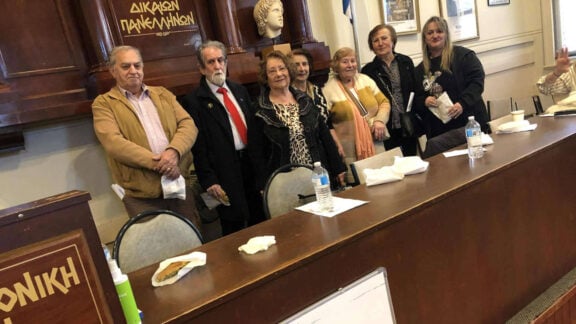This year, the International Sociological Association (ISA) and the University of Melbourne will collaborate on the 20th Congress, which occurs every four years with the aim of promoting the exchange of knowledge and ideas surrounding significant social issues and topics.
The Congress themed “Resurgent Authoritarianism: Sociology of New Entanglements of Religions, Policies and Economies,” will be held at the Melbourne Convention & Exhibition Centre from June 25 to July 1.
ISA – an international sociological association founded in 1949 with the support of UNESCO -contributes to the advancement of sociological knowledge through scientific research.
By facilitating interdisciplinary dialogue and cooperation, the ISA also promotes a more comprehensive and holistic understanding of social phenomena and fosters innovative approaches in the field of Sociology.
As part of the 20th ISA Congress, the scientific committee for Sociology of Communication, Knowledge and Culture has organized 17 thematic sessions focusing on various important topics related to the field of communication.
The aim is to address issues such as social media and their impact on social bonds, television in the digital era, media communication in the Ukraine-Russia war , narratives of crisis, contemporary visual culture, and “surveillance” through technology.
Professor Christiana Constantopoulou talked to Neos Kosmos, and referred to the initiative of the Sociology of Communication, Knowledge, and Culture Research Committee, to organise a pre-congress with the aim of creating a “bridge of communication with the local community.”
Constantopoulou is a professor of Sociology of Communication at Panteion University and the National and Kapodistrian University of Athens, and was elected president of the Research Committee for Sociology of Communication, Knowledge, and Culture, as well as Program Coordinator for the 17 sessions of the Committee.
The pre-congress on “Gender and Media,” which is open to everyone and free to attend, is scheduled to take place on June 23 and 24, at the Crown Convention Centre. Its goal is to examine the significance of gender identities in contemporary society, particularly in the context of ongoing social and cultural transformations.
In contemporary society, as old ideas are being reconsidered and social aspects redefined, media platforms have emerged as powerful agents that contribute to the reproduction of social representations.
The pre-congress aims to explore the mentalities and values shaped in different parts of the world, with a specific focus on the challenges as well as the prospects that arise in the process of reshaping social conventions and prejudices surrounding diversity.
Furthermore, it opens new avenues for dialogue among sociologists who were unable to register for the main Congress, while free admission allows access to a broader audience, promoting the exchange of views and communication between scholars and the community.
Within the pre-congress framework, 45 speakers from four continents will present their research findings and ideas, with the aim of expanding the perspectives and understanding of the topic by incorporating insights from various cultures and backgrounds.
The initiative also extends an invitation for students and researchers from Melbourne to actively participate. By enabling them to share their personal experiences, raise their questions, and contribute testimonies from the local community, it enriches the overall conversation, as it ensures a diverse range of perspectives and fosters a more inclusive dialogue.
According to Constantopoulou, “Greek participation is very limited.”
She points out that the distance between Australia and Greece, along with the constraints on research funding, pose significant barriers to participation, particularly in the field of social sciences.
The “sadness” expressed regarding this circumstance, indicates her awareness of the missed opportunities and the potential impact that sociological research can have on understanding and transforming social cohesion for the better.







